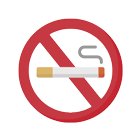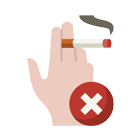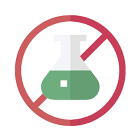How can you reduce your risk of lung cancer?
Learn more about the details of the various ways you can reduce your risk of lung cancer below.

Stop or reduce tobacco use
Stopping smoking or reducing the amount of tobacco you use is the best thing that you can do to improve the health of your lungs and those of people around you. If you have never used tobacco, don’t start.
If you actively use tobacco and want to get help to stop smoking (also known as ‘smoking cessation’) talk to your doctor about how to do this. There may be one-to-one or group support sessions that you can access. You may also be offered the chance to try using nicotine replacement products or a medicine that can help people stop smoking by reducing cravings and other withdrawal effects.

Avoid second-hand tobacco smoke
Avoiding breathing in second-hand smoke (also called ‘passive smoking’) from tobacco use can reduce your risk. Try to avoid spending time in areas where people smoke. If you live or work with someone who smokes ask them to smoke outside.

Follow workplace safety rules
If your job increases your risk of exposure to risk factors that are known to cause cancer, make sure that you and the people you work with follow any safety guidelines carefully. For example, make sure that you and others are wearing any protective clothing correctly. Talk to a medical professional about other ways of protecting yourself if you are worried about exposure in the workplace.

Test your home environment
You can get the levels of radon in your home tested. This is particularly important if you live in an area where radon levels are naturally high. If radon levels are high, work can be done to make your home safer.
You can also get your home checked for asbestos. If it is found it can be removed safely.
Tests are available that check levels of chemicals that are known to cause cancer like arsenic, radon and silica in drinking water.

Eat and drink well
Eating a balanced, healthy diet that includes lots of fruits and vegetables, can reduce the risk of many types of cancer, not just lung cancer. Eating more wholegrain foods rather than ones that include refined (processed) grains, like white bread and pasta, can also help, as can reducing the amount of red and processed meat that you eat.
Getting nutrients like vitamins and minerals from food is better for our bodies than getting them in the form of supplements like pills, especially if the supplements contain much higher doses of vitamins than your body would naturally be exposed to.
If you drink alcohol, reducing the amount you drink can reduce your risk of developing some cancers.

Exercise
As with a healthy diet, getting regular exercise is known to reduce your risk of many cancers, not just lung cancer. Try to be active for 30 minutes most days of the week. If you don’t currently get much exercise, start slowly and gently (for example, by going for a short walk) to avoid getting an injury. When you are starting to build a new exercise habit, little and often is much better than nothing and soon adds up. As you get fitter, try to increase the frequency and intensity of your activity.
